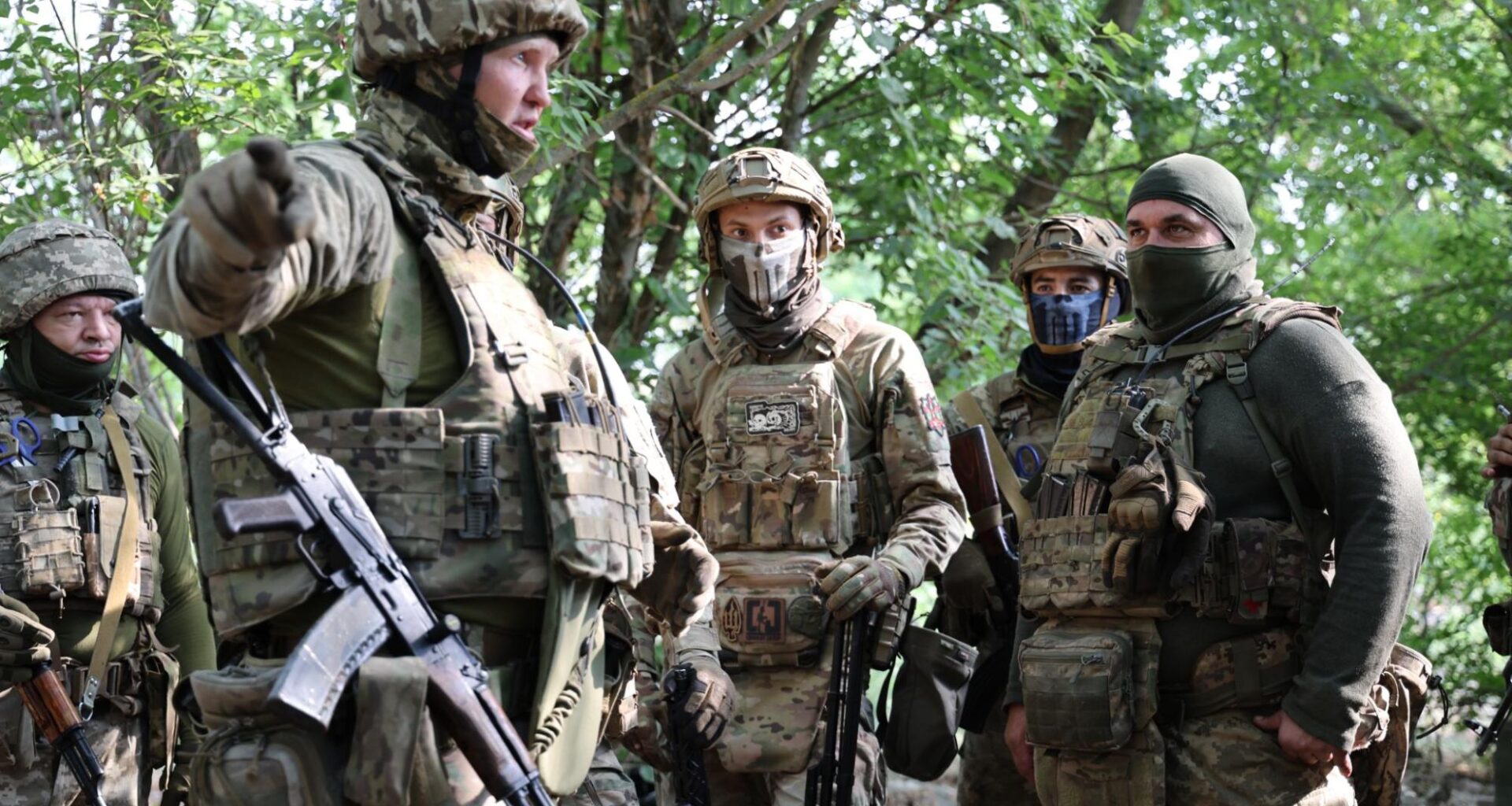On the frontline in Zaporizhzhia Oblast, hearing Spanish could really catch you off guard.
Yet that was the case before Colombian soldiers jumped in to beef up the ranks of the 98th Separate Territorial Defense Battalion in recent months.
Since the onset of the full-scale invasion, Ukraine has become a magnet for fighters from over 100 countries. In the war's early days, President Zelenskyy's rallying cry for international support drew in up to 20,000 foreign fighters to the country’s International Legion and beyond, with thousands still staying the course.
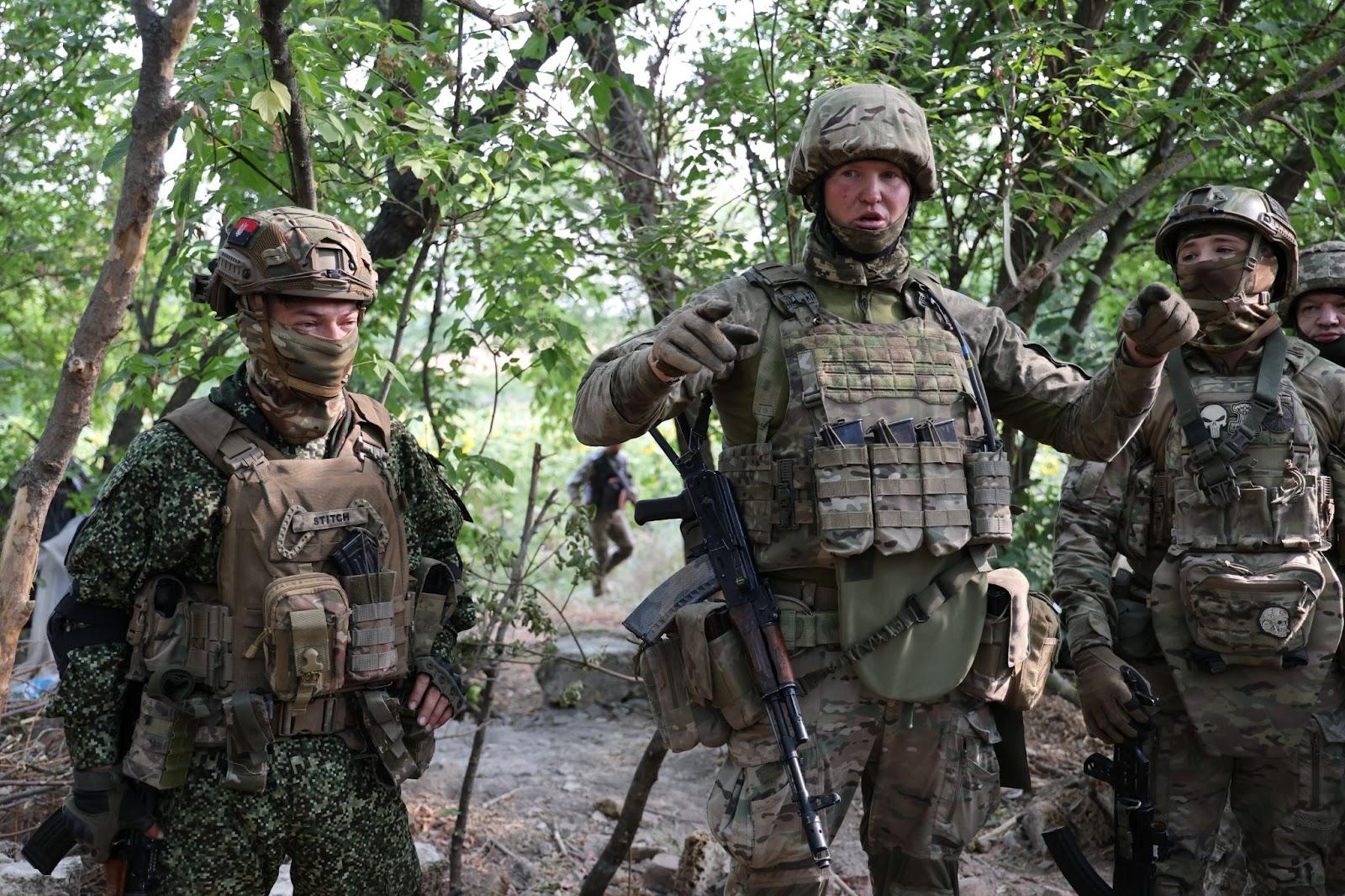
Now, this bustling mix of Spanish and Ukrainian speakers adds a unique twist to the plains of southeastern Ukraine, where both groups pick up phrases from one another and often rely on phone translators to make sense of their conversations.
Combatants for cause and cash
Crew commander Dima, known by his callsign "Passport," leads the hustling crowd. He candidly points out that the effectiveness of the Colombian soldiers varies.
"Some of them are incredibly hardworking and take military service very seriously, while others are less committed," the commander says.
While many Colombian soldiers showed unwavering dedication, he also remembers those who chose to leave as the attacks intensified and bombs rained down on their positions.
Estimates suggest that between 200 and 2,000 Colombian nationals actively fight alongside Ukrainian troops. Many of these former military personnel are lured in by the chance to receive citizenship or pocket between $3,000 and $5,000 a month — far more than they could earn back home in Colombia.
Colombian soldiers in Ukraine typically sign six-month contracts, much shorter than the three-year commitments of their Ukrainian counterparts, yet both groups receive the same pay.
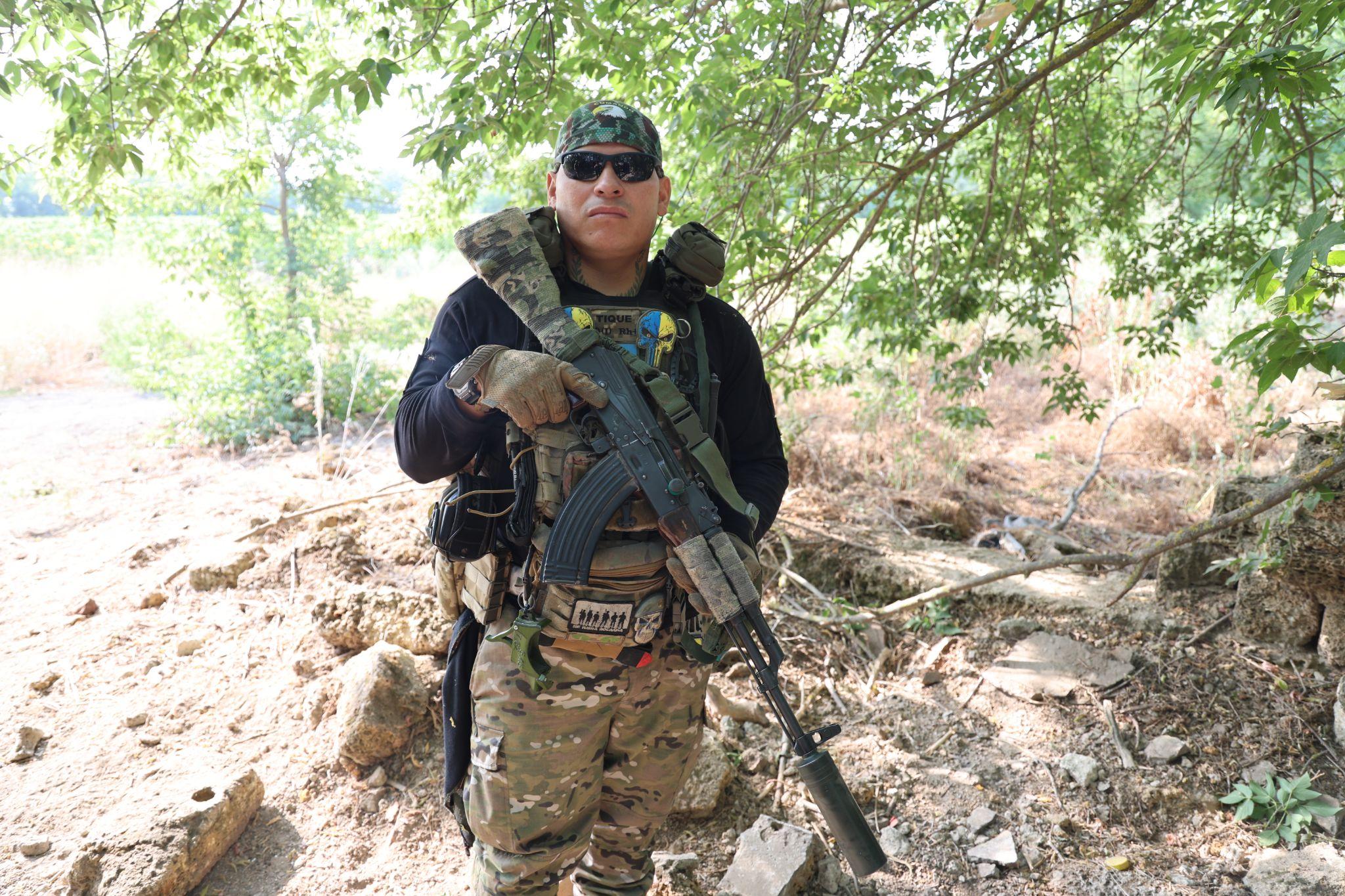
Dima pointed out that more Colombians are stepping up to fill the void left by battlefield losses after recent mobilization efforts have hit a snag, resulting in a drop in Ukrainian recruits.
However, the surge of foreign volunteers carries its own set of costs.
"Ukrainian soldiers fight for ideals and to defend our homeland," the commander said. "The Colombians, for the most part, are here to earn money. They are generally less willing to take risks and put their lives in danger."
Shifting gears
The commander doesn't hold back from admitting that Colombian soldiers excel at building defensive fortifications. However, when it comes to charging into enemy trenches, their effectiveness takes a hit. Combat dangers and the threat of drones overhead make bold assaults a tough sell.
Among the influx of fighters are Lufan, known as "Cobra," who joined the battle in Ukraine through a contact already on the ground, and Robinson, nicknamed "Maverick," who took a similar leap into battle.
Lufan pins the count that around 1,000 Colombian soldiers are currently on the front lines, while Robinson believes that figure could climb to over 2,000.
“When I heard about the possibility of coming to Ukraine and joining its army, I decided to come and support the cause of Ukraine's freedom and because of the good income,” Lufan admits.
The volunteer touched down in December 2023, inspired by a comrade who had already been on the ground and shared the situation with him.
“Unfortunately, when I arrived in Ukraine, I found out that he had died in combat,” Lufan said.
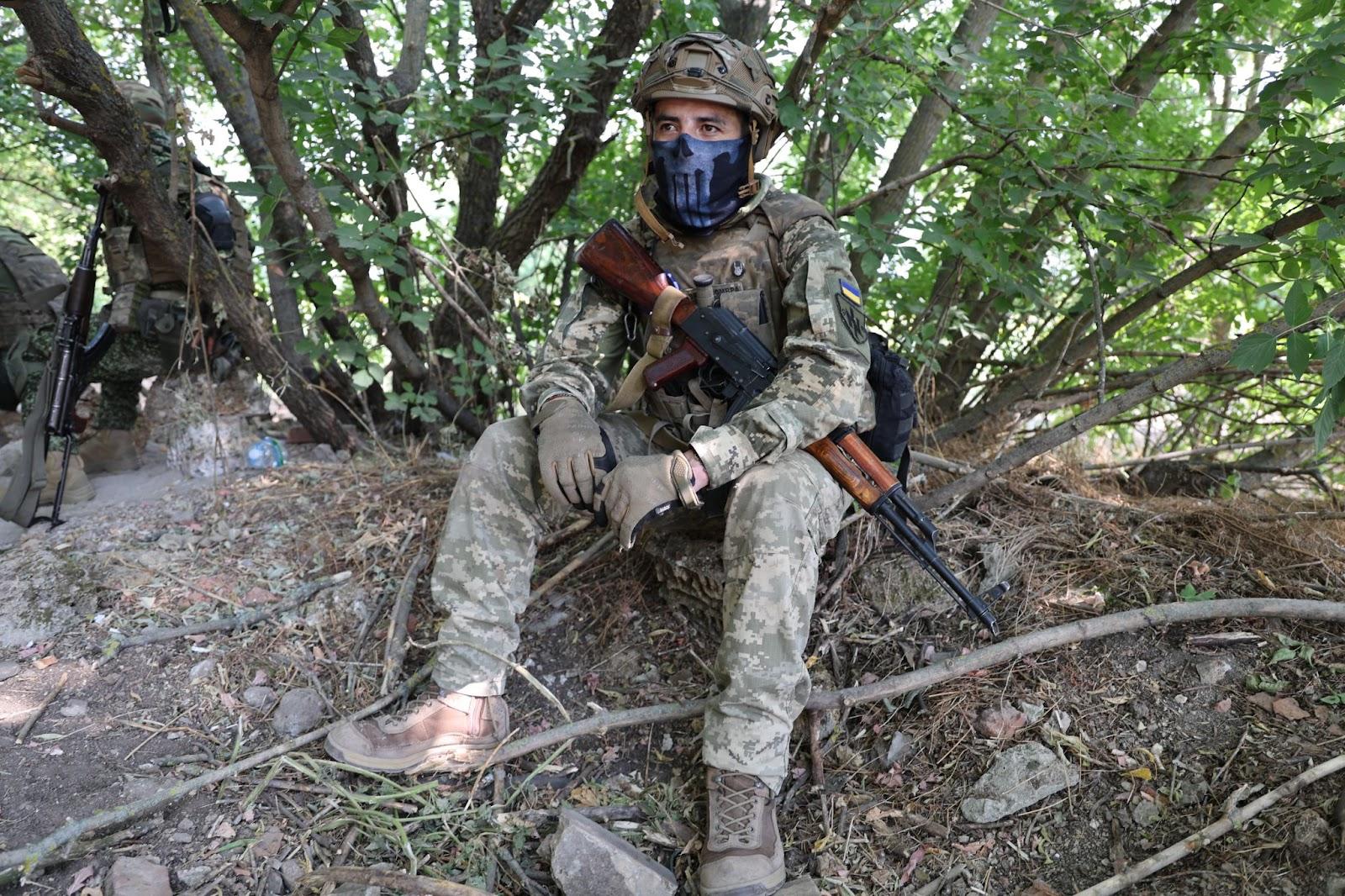
A different kind of war
Robinson points out that Colombian fighters gain extensive combat experience in various ways — ranging from taking on drug cartels to standing up against the Revolutionary Armed Forces of Colombia (FARC), a rebel group that has challenged the Colombian government since the mid-20th century.
“We confront these groups in hand-to-hand combat in the Colombian jungles and cities,” he said.
However, the technological edge in Russia's war against Ukraine is a game changer that turns the tables on their previous encounters with terrorist networks, which were mainly armed with makeshift bombs crafted from modified gas cylinders.
“The war we fight in Colombia against terrorist networks is very different from the war in Ukraine. In Colombia, these terrorists don’t use kamikaze drones, warplanes, tanks, or even artillery and missiles,” the volunteer says.
With a law enforcement background, much like many Colombians making their way to Ukraine, Robinson insists that their training in the army and national police has toughened them up mentally and physically to face extreme situations head-on.
Yet, he admits that the experiences Colombian soldiers are racking up in Ukraine are a world apart, as the terrain is different and the conflict is primarily driven by technology.
War beyond the battlefields
The challenges Colombian volunteers face in Ukraine go beyond high-tech weaponry or unforgiving terrain. Many obstacles they encounter in the flatlands of Zaporizhzhia Oblast pull them into the heart of the Ukrainian experience — especially when confronting Russian treachery on the frontlines.
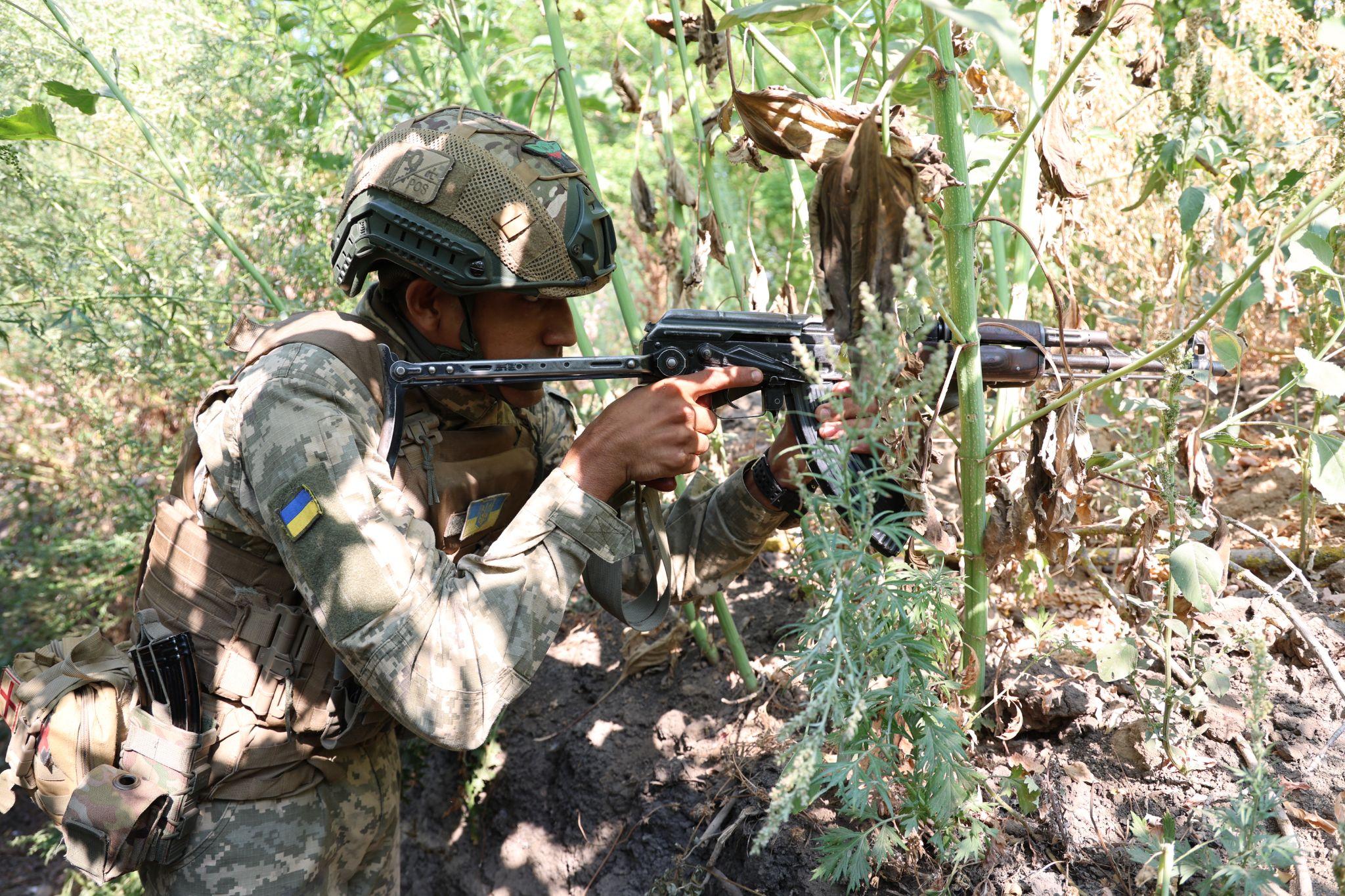
Robinson expressed his worries about a recent incident where two Colombian soldiers, while trying to make their way home, were detained in Venezuela and subsequently sent to Russia, facing charges of mercenary activities.
He clarified that Alexander Ante and José Aron Medina, two of the earliest international volunteers, now facing up to 15 years in Russian prison for joining Ukraine’s resistance, were not acting as mercenaries but volunteer fighters aligned with the Ukrainian military forces.
Robinson calls his drive to stand up to Russian oppression his core motivation for joining Ukrainian forces, describing it as a quest for justice against aggression.
“The main reason I made the decision to come to Ukraine was to support and help a nation oppressed and indiscriminately attacked by Russia,” he admits.
Robinson views his motto as the pulse of his mission, bolstering his resolve to stand tall against the Russians even as many Colombian soldiers finish their contracts and head home as approaching winter ramps up the battlefield's challenges.
“When the day comes for me to return to Colombia, with God's help, I will leave thrilled, having gotten to know this country, its people, and its culture — having shared both good and painful moments,” the volunteer says.
Related:
• Georgia teeters on edge as pro-Russia party claims disputed win
• Ukrainian sappers race against the world’s largest minefield
• An entrepreneur’s journey to leading one of Ukraine’s deadliest drone units
• Ukraine deploys demining drones to break Russia’s Dnipro wall
• Chasiv Yar’s survival rests on daring night drone team

